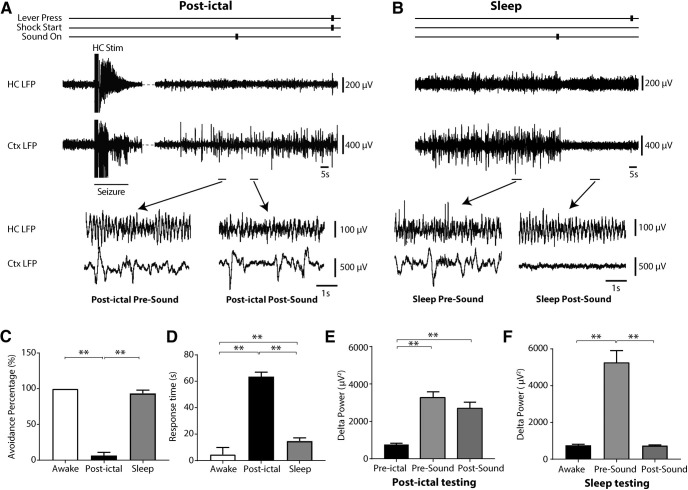Figure 4.
Responses to auditory stimuli are impaired in the lever-press E/A task during the postictal period but are preserved during naturally occurring sleep. A, Example of lever-press E/A task during the postictal period. The auditory signal failed to eliminate cortical slow waves, and the rat failed to avoid the shock (pushed lever only after shock delivery). B, In naturally occurring sleep, the auditory stimulus abolished cortical slowing and woke up rat to press lever and avoid shock. C, Avoidance percentage for E/A task is decreased during postictal period when compared with natural sleep, which is comparable to that of animals in the awake state. D, Response time in E/A task is longer during postictal period when compared with response time in natural sleep and awake state. E, The auditory stimulus does not abolish postictal delta slow wave activity in comparison to the preictal period. F, In contrast the auditory stimulus markedly reduces delta slowing during natural sleep; n = 9 rats, 49 natural sleep sessions and 23 postictal sessions. All results are mean ± SEM; **p < 0.01. Ctx, orbital frontal cortex.

